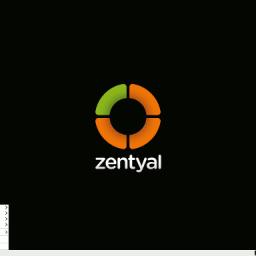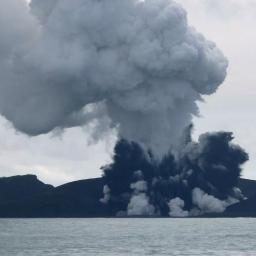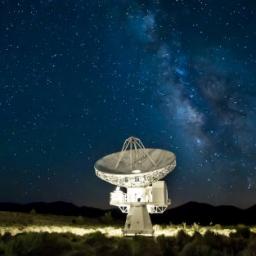In 2008, the Drug Enforcement Agency created a program to automatically read and monitor vehicle license plates near border crossings in California, Arizona, and Texas. Federal authorities explained that the system would be used strictly to track the movement of contraband and money by Mexican drug cartels. Today, however,
the system has been secretly expanded to hundreds of cameras and scanners far away from border crossings, from Georgia to New Jersey to Florida. The resulting database tracks the movement of millions of vehicles - maybe yours - throughout the United States. Who says that bureaucrats don't know how to take an idea and run with it?
According to documents and e-mails obtained by the American Civil Liberties Union, the vast database can be searched by any participating police agency. No search warrants are required, and no court supervises the system's management. Not that long ago, the idea of maintaining such information on the movement of law-abiding citizens would have been universally derided as a police state tactic. Many of the same politicians who rush to the microphones to denounce Facebook or Google for using "personal" data to help sell consumers shampoo or Doritos are proving awfully quiet about the proliferation of government databases on private citizens.

Zentyal is an interesting
utility distro with a slick web UI designed to solve a common complaint... getting a plethora of networking services up and running on Linux in minutes with just a few clicks, while still being capable enough to support the needs of small to medium businesses. It resembles the very expensive unified threat management products from companies like Symantec (which are often Linux-based themselves) that have become popular in many organizations, but which sell for tens of thousands of dollars instead of being free to install on any spare server (or virtual machine).
Zentyal
can be configured to serve as anything from an IDS and firewall which does network routing with QoS, VLAN tagging, and VPN/IPSec, to a certificate authority, or an Exchange replacement with calendar, contacts, ActiveSync, MAPI, and Jabber for chat. It can be your VoIP server, with voicemail and hold music, or Active Directory controller and file server (Samba) supporting Windows clients.
Zentyal can even be made into a full "captive portal" gateway, like those used by hotels and other WiFi hotspot providers for displaying terms of service and possibly requesting payment information, but which can also be invaluable for allowing misconfigured laptops internet access. The usual basic services are there, like web sites and printer sharing, of course. And clustering is an option for high availability of services, if you run more than one Zentyal server.
A few months after
fining a Marriott hotel for interfering with customer Wi-Fi hotspots in order to force customers to pay $250 to $1,000 for access to their own WiFi network, the FCC made its stance on the practice inescapably clear:
No hotel, convention center, or other commercial establishment or the network operator providing services at such establishments may intentionally block or disrupt personal Wi-Fi hot spots on such premises, including as part of an effort to force consumers to purchase access to the property owner's Wi-Fi network. Such action is illegal and violations could lead to the assessment of substantial monetary penalties.
http://www.fcc.gov/document/warning-wi-fi-blocking-prohibited
Marriott and several other organizations claimed their actions were valid security measures, protecting their customers "from rogue wireless hotspots that can cause degraded service, insidious cyber-attacks and identity theft," and requested clarification from the FCC on just how much WiFi interference they were allowed to get away with; now they have their answer. Of course the FCC ruling could still be challenged in court, but is likely to have an immediate effect reducing how widespread this practice is. The public is urged to visit
http://www.fcc.gov/complaints or call 1-888-CALL-FCC if you have reason to believe your personal Wi-Fi hot spot has been blocked.
Microsoft has admitted that the new
Windows 10 operating system tracks keystrokes and examines audio input. The new operating system, currently a free download for users with Windows 7 and Windows 8 licences, not only tracks how long it takes to open different types of files, the make and model of device you're using, but it's also logging keystrokes and collecting voice recordings. Microsoft will not delete data already collected from Windows 10 users.
Scientists have created
a new water-hating material by laser-etching a microscopic pattern on a metal surface. The surface could be used for everything from preventing ice from developing on airplane wings to creating self-cleaning toilets. And unlike traditional chemical coatings, the new material will not wear off, the researchers say.
It's much more repellent than typical chemical coatings, like the Teflon in nonstick frying pans. Teflon-coated surfaces need to be tilted at nearly a 70-degree angle before a water droplet will slide off, whereas the new material only needs to be tilted at less than 5 degrees, the researchers reported in the Journal of Applied Physics. To create the new material, Guo and his colleagues used powerful, but very short, laser pulses to etch a platinum, titanium or brass surface. Currently, it takes an hour to etch a 1 inch by 1 inch (2.5 by 2.5 centimeters) piece of metal, so this process needs to be sped up.
The Chinese government
has begun cracking down on one of the few avenues its citizens and foreigners have to accessing the full internet. China announced it is "upgrading" its internet censorship to disrupt VPN services inside the nation of 1.3 billion people, the People's Daily Newspaper in Beijing reported.
The Great Firewall of China has long blocked those within the country from reaching popular international sites such as Google, Twitter, Facebook and YouTube, as well as a great many other sites which include any information deemed unflattering to the single-party Chinese government. One common way to get around the censorship is to purchase access to a virtual private network (VPN). These services allow a user to create a private pipeline to the internet, bypassing China's online censors. It is also a common means for foreign companies to connect to and communicate with their China-based offices and employees.
Under Chinese law, companies and individuals that use VPN services are required to register with the Ministry of Industry and Information Technology, though few do. One of the more popular VPN providers in China, Astrill, tweeted that "due to increased censorship in China," VPN usage on Apple devices was being blocked "in almost real-time." The blockage "is just a way for China to say 'we don't want you here." The Chinese blockage of VPNs this week "is more sophisticated than what we've seen in the past."
Quelab has created
a balloon shaped as a tetrahedron with transparent top and black bottom which lifts with just solar power. They begun this project "to enable us to know that flight is possible without using either the scarce and non-renewable gas Helium, the possibly-dangerous Hydrogen, or even the fossil-fuel Propane".
As a funny side-note: The Tetroon escaped and got reported as UFO.

New Yorkers are now renting out their toilets via an Airbnb-inspired app called "Airpnp" that
shows the closest available commode and the price to use it, and instantly contacts the owner. Currently a handful of private addresses in the city offer their johns to any Johnny-come-lately.
The Post located one porcelain throne that bills itself as a "charming Carroll Gardens commode" in a "cozy loft-style bathroom" on Smith Street, Brooklyn, at the OrangeYouGlad graphic-design studio. "You're our first!" yelled art director Connie Leonard excitedly when The Post walked in and asked to use the advertised WC. The OrangeYouGlad crew doesn't charge latrine users - unlike a toilet shark in Little Italy who was charging $20 for people who "really need to go and this will have to do!" The bathroom doesn't even have a sink. A toilet in Woodside, Queens, is more affordable at just $1.

A Tongan volcano has
created a substantial new island since it began erupting last month, spewing out huge volumes of rock and dense ash that has killed nearby vegetation. Tonga is almost 2,000 kilometers (1,243 miles) northeast of New Zealand. It lies on the so-called Pacific "Ring of Fire", where continental plates collide causing frequent volcanic and seismic activity.
The new island is more than one kilometer (0.6 mile) wide, two kilometers (1.2 miles) long and about 100 meters (328 feet) high. During observations the volcano was erupting about every five minutes to a height of about 400 meters (1,312 feet), accompanied by some large rocks...
The volcano rumbled to life on December 20 for the first time in five years, erupting from two vents, one on the uninhabited island of Hunga Ha'apai and the other underwater about 100 meters (328 feet) offshore. A number of international flights were cancelled earlier this week amid concerns about the volcano's ash plume but they resumed on Wednesday, with authorities saying debris from the eruption was not being thrown high into the atmosphere.

A team of scientists from Swinburne University in Melbourne, Australia, has
identified the first ever fast radio burst, sometimes known as a
blitzar, as it happened. These bursts last around one millisecond and give off as much energy as the sun does in a million years.
This blitzar's origin is a mystery, but whatever caused it "must be huge, cataclysmic and up to 5.5 billion light years away," according to researcher Emily Petroff when she spoke to New Scientist. It could be a flare from a giant magnetized neutron star, the collapse of an oversized neutron star, or something else altogether. The data we have reveals that the radiation produced by the blitzar is circularly, not linearly, polaris-which means the waves vibrate in two planes as opposed to one. Which is great! Though nobody knows what on Earth it might mean just yet.



